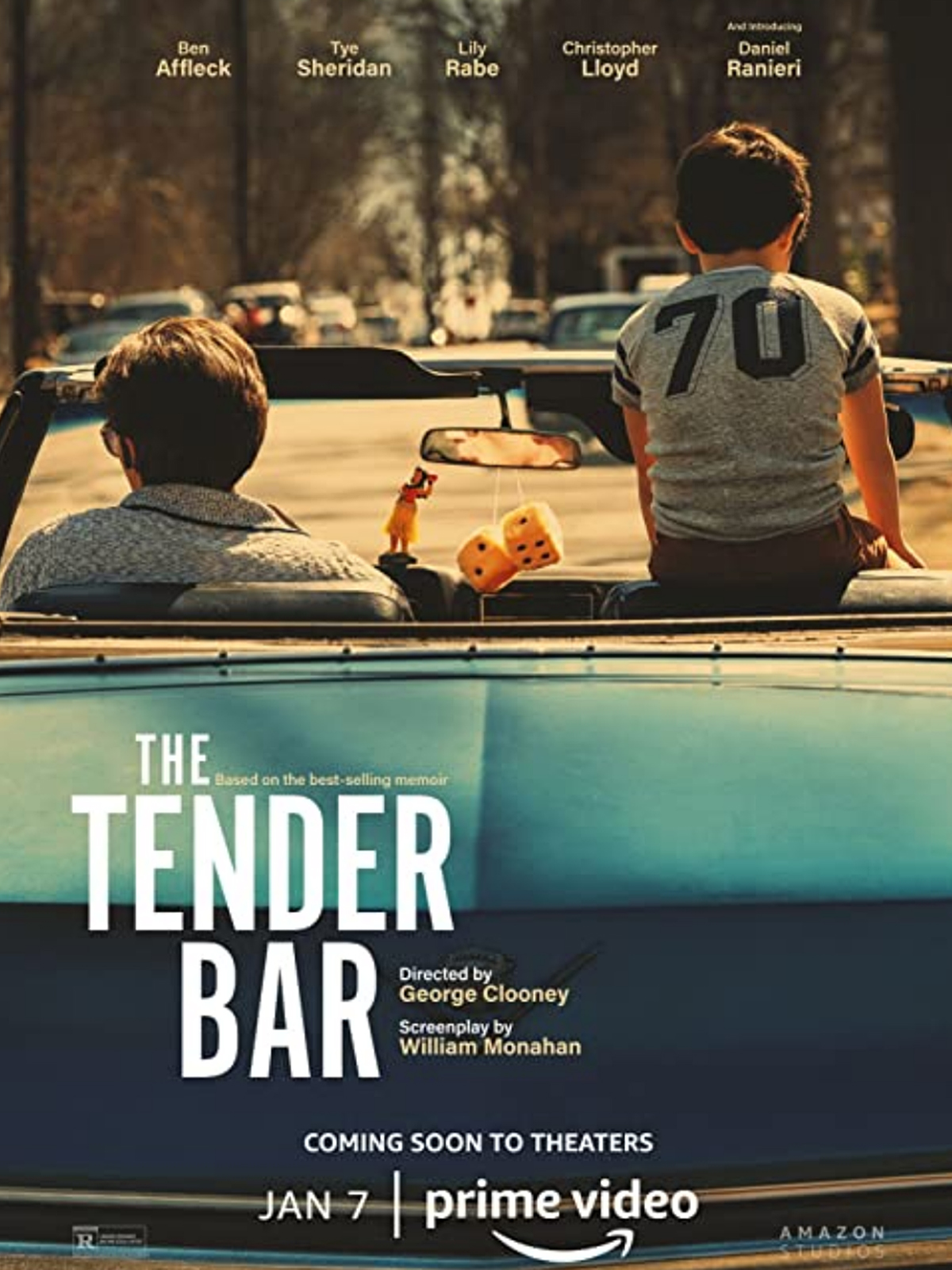
- Film
George Clooney’s “Tender Bar”: “It was just a gentle, simple story”
It was late 2020. Midnight Sky had just opened over the holidays. It was an expensive film, difficult to shoot, in freezing temperatures and ice storms in Iceland. George Clooney had once again accomplished the triple job of starring, directing and producing. He had finished shooting in December 2019 and spent the beginning of the pandemic in a sort of lockdown of his own, in the editing studio. The world was paralyzed by an unknown virus and so was the film industry. Best-laid plans for movie productions were put on hold, especially high-budget ones. But Clooney was itching to do something, and he knew it had to be a smaller film. Along came The Tender Bar based on a book written by its protagonist J.R. Moehringer, a story about a boy who grows up under difficult circumstances, with an absent father but surrounded by a hard-working mother and loving family members and the characters in his uncle’s bar.
“I chased the book a few years ago and lost in a bidding war,” Clooney told us. “Then about this time last year [they] sent me this beautiful script. Nobody dies. The world doesn’t end. There was nothing to fight over. It was just a gentle, simple story about a boy looking for something he had all along. I just loved it.”
With his producing partner Grant Heslov he assembled a crew, realizing that “Covid-safety requirements would add seven million to the budget.” He found a stellar cast of actors that included Ben Affleck as Uncle Charlie, the father figure in JR’s life; Lily Rabe as his mother; Christopher Lloyd as the grumpy grandpa; and two actors playing the boy, Daniel Ranieri as the younger and Tye Sheridan as the older version.
Sheridan jumped on board immediately: “When I first read it, I was like, “Oh man, this script is so good. It’s got so much heart. I really found a lot of personal connections to the character and was a fan of George’s films, like Good Night, and Good Luck and Ides of March. I was definitely excited about working with him as a director. I was just trying to figure out what the hell a Long Island accent was supposed to sound like because I’m from Texas.”
The director says, he got lucky finding the younger JR. “Daniel wasn’t an actor, but he was born to act. He was a pro in about two days. He made it look so easy he put all the rest of us to shame.” He laughs. “I don’t know whether being a father has any effect on the way I direct kids. I’m a 60-year-old teenager so maybe it’s just the fact that emotionally we see eye to eye!”
Clooney’s directing skills made a big impression on Sheridan. “George, in watching him work with Daniel, it was amazing because actually it wasn’t all that different than how he works with the rest of the cast, which is that he trusts his cast. He trusts his actors. He trusts his crew. He trusts his audience. He gave us all so much freedom. He gave Daniel permission and freedom to play the part. I think that I’m sure, George is someone who loves, he knows from it, but he loves acting. I think he knows how to create that space of real joy, where you feel safe to try things and potentially fail along the way. I felt like there was so much breath and space in the way that he told the story.”
Lily Rabe agrees. “George got such a lightness of touch in his approach. The movie has such incredible heart as Tye was saying, but it’s not sentimental. I think it speaks so much to sort of who George is as a person. The heart of the movie feels so authentic because of George’s authentic heart. I think in a lot of other hands, it could have slipped towards a sort of sweetness that could have felt more sentimental.”
Ben Affleck especially related to Uncle Charlie, his part. “He’s who my dad kind of imagined himself to be in a lot of ways. My father was a bartender. He was a working guy. He was a very well-read autodidact with a lot of opinions. My daughter says that. She read the script. She said, ‘Oh, you’re just playing yourself?’ I said, ‘What do you mean?’ She’s like, ‘Well, this character just stands there and sermonizes to people the whole time, just like you do.’”
The hardest part of production were our current circumstances. No one had dealt with this many health and safety requirements before, especially not while shooting a film. Clooney was very well aware of the responsibility that rested on him and his co-producer: “Everything is more difficult shooting during the pandemic. But nothing matches your incredible sense of responsibility to keep everyone safe. No one had been vaccinated yet, so every day was a pressure cooker. I couldn’t be prouder of the crew who all worked tirelessly to keep everyone safe.”

